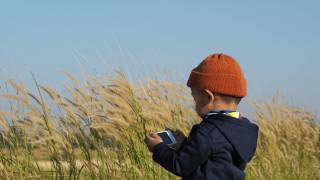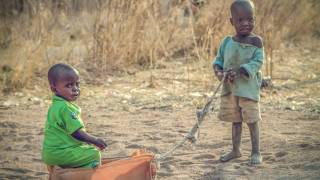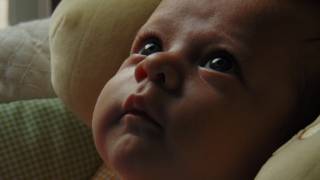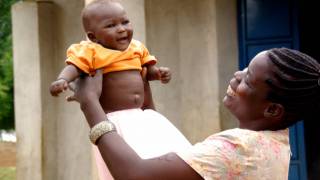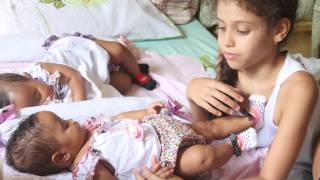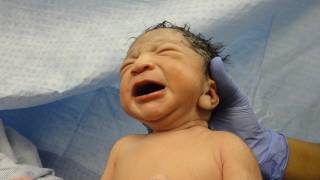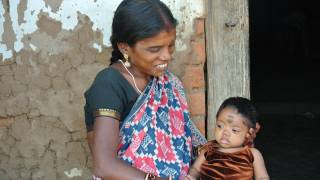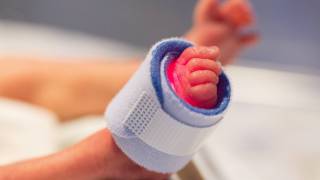Fight Off Rotavirus with Vaccinations

Rotaviruses are responsible for more diarrhoea disease-associated mortality than any other single agent. Vaccination may be the simple key to combating this diarrhoea disease worldwide.
Rotavirus is a contagious virus that can cause gastroenteritis (inflammation of the stomach and intestines), easily spread among infants and young children. It has been associated with approximately 40% of childhood hospitalizations for diarrhea and vomiting.
Rotavirus is one of the leading causes of severe childhood diarrhea in Africa.
According to the Centers of Disease and Control (CDC), natural immunity to rotavirus infection indicates that rather than protection from reinfection such immunity gives rise to less severe and less frequent attacks of diarrhoea. Early attempts to design a rotavirus vaccine with bovine rotavirus failed because of poor efficacy in some developing countries.
While the oral rotavirus vaccine is regularly used in high- and middle-income countries, it is less successful in low-income countries.
A stumbling block to truly effective oral vaccines seems to be immunogenicity in developing countries. If efficacy can be ensured by trials in the developing countries, money spent on rotavirus vaccines will be well spent.
A new study published in The Lancet Infectious Diseases showed that an experimental injected rotavirus vaccine was safe and immunogenic during a small trial in South Africa.
"The P2-VP8-P[8] vaccine was found to be safe and immunogenic, with evidence that it might provide protection against rotavirus disease in infants," the research authors concluded.
The median reduction in hospitalizations for acute gastroenteritis was 38%.
In the future, CDC officials noted they hope to find information about the rotavirus vaccine's impact on those who have not been vaccinated. Most vaccines have effects that extend far beyond the vaccinated population and this one should be no exception.
The CDC reports the rotavirus virus can cause severe watery diarrhea, vomiting, fever, and abdominal pain. Children who get rotavirus disease can become dehydrated and may need to be hospitalized.
Rotavirus vaccine is the best way to protect your child against rotavirus illness. Most children (about 9 out of 10) who get the vaccine will be protected from severe rotavirus illness.
RotaTeq™ (Merck) and Rotarix™ (GlaxoSmithKline) are vaccines developed to prevent rotavirus diarrhea in children under five years old. Both FDA approved products were introduced into national immunization programs in 2006.
This first dose of either vaccine is most effective if it is given before a child is 15 weeks old. Children should receive all doses of rotavirus vaccine before they turn 8 months old. Rotavirus vaccine may be given at the same time as other childhood vaccines.
Both vaccines are taken by mouth and swallowed.
Millions of infants in the United States have taken the rotavirus vaccine safely.
However, some studies have shown a small increase in cases of intussusception from rotavirus vaccination. Intussusception is a bowel blockage that is treated in a hospital and may require surgery. It is estimated that risk of intussusception is 1 in every 20,000 infants to 1 in every 100,000 infants after vaccination. Intussusception is most likely to happen within the first week after the first or second dose of rotavirus vaccine.
The CDC Vaccine Price Lists provides current vaccine contract prices and general information.
Researchers: Dr Michelle J Groome, PhD, Anthonet Koen, MD, Alan Fix, MD, Nicola Page, PhD, Lisa Jose, MD, Prof Shabir A Madhi, PhD, Monica McNeal, MS, Len Dally, MSc, Iksung Cho, MS, Maureen Power, MPH, Jorge Flores, MD, Stanley Cryz, PhD. All authors critically revised drafts of article and approved final submitted version.
Declaration of potential conflicts of interests: MJG reports funding from PATH Vaccine Solutions and personal fees from GlaxoSmithKline. AK and LJ report funding from PATH Vaccine Solutions. NP reports honoraria from GlaxoSmithKline, Merck, and Aspen Pharma. SAM reports grants from PATH, grants from Novartis and GlaxoSmithKline, and grants and personal fees from Pfizer and the Bill & Melinda Gates Foundation. MM reports laboratory service agreements with PATH, Merck, and GlaxoSmithKline. IC reports funding from PATH and is a paid consultant for PATH. MP is an employee of PATH, and reports grants from the Bill & Melinda Gates Foundation. AF, JF, LD, and SC declare no competing interests.
Acknowledgments: The Bill & Melinda Gates Foundation (Seattle, WA, USA; grant no OPP1033438) funded this research.
Our Trust Standards: Medical Advisory Committee






